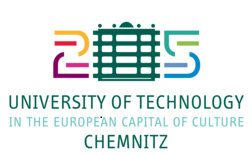Artificial Intelligence and Chat Bots in Academic Research
DOI:
https://doi.org/10.71514/jssal/2023.111Keywords:
Artificial intelligence, scientific research, ChatGPT, scientific ethics, AI platformsAbstract
The aim of our study is to discuss the use of artificial intelligence-supported platforms, which have become increasingly popular in recent months, in the context of ethics, opportunities, challenges, and the role of the researcher. In this context, we analysed platforms such as ChatGPT, ChatPDF, Consensus, SciSpace, and Scite Assistant. Within the scope of our analyses, we concluded that various regulations regarding the use of AI-supported platforms in scientific research should be enacted as soon as possible. Although such platforms offer opportunities for researchers, they also bring challenges such as referencing and reproducibility of scientific work. Besides, the use of AI-supported platforms in scientific research also puts the role of researchers into question.
Downloads
References
Buriak, J. M., Akinwande, D., Artzi, N., Brinker, C. J., Burrows, C., Chan, W. C., ... & Ye, J. (2023). Best Practices for Using AI When Writing Scientific Manuscripts: Caution, Care, and Consideration: Creative Science Depends on It. ACS nano. 17, 4091-4093. https://doi.org/10.1021/acsnano.3c01544
ChatGPT., & Zhavoronkov, A. (2022). Rapamycin in the context of Pascal’s Wager: generative pre-trained transformer perspective. Oncoscience, 9, 82. https://doi.org/10.18632/oncoscience.571
Davis, P. (2023). Did ChatGPT Just Lie To Me? The Scholarly Kitchen. https://scholarlykitchen.sspnet.org/2023/01/13/did-chatgpt-just-lie-to-me/
Dwivedi, Y. K., Kshetri, N., Hughes, L., Slade, E. L., Jeyaraj, A., Kar, A. K., ... & Wright, R. (2023). “So what if ChatGPT wrote it?” Multidisciplinary perspectives on opportunities, challenges and implications of generative conversational AI for research, practice and policy. International Journal of Information Management, 71, 102642. https://doi.org/10.1016/j.ijinfomgt.2023.102642
Else, H. (2023). Abstracts written by ChatGPT fool scientists. Nature, 613(7944), 423-423. https://doi.org/10.1038/d41586-023-00056-7
Haleem, A., Javaid, M., & Singh, R. P. (2022). An era of ChatGPT as a significant futuristic support tool: A study on features, abilities, and challenges. BenchCouncil transactions on benchmarks, standards and evaluations, 2(4), 100089. https://doi.org/10.1016/j.tbench.2023.100089
Homolak, J. (2023). Opportunities and risks of ChatGPT in medicine, science, and academic publishing: a modern Promethean dilemma. Croatian Medical Journal, 64(1), 1-3. https://urn.nsk.hr/urn:nbn:hr:105:504778
Kasneci, E., Seßler, K., Küchemann, S., Bannert, M., Dementieva, D., Fischer, F., ... & Kasneci, G. (2023). ChatGPT for good? On opportunities and challenges of large language models for education. Learning and Individual Differences, 103, 102274. https://doi.org/10.1016/j.lindif.2023.102274
Liebrenz, M., Schleifer, R., Buadze, A., Bhugra, D., & Smith, A. (2023). Generating scholarly content with ChatGPT: ethical challenges for medical publishing. The Lancet Digital Health, 5(3), e105-e106. https://doi.org/10.1016/S2589-7500(23)00019-5
McAdoo, T., (2023). How to cite ChatGPT. https://apastyle.apa.org/blog/how-to-cite-chatgpt
Mijwel, M. M. (2015). History of Artificial Intelligence Yapay Zekânın Tarihi. https://www.researchgate.net/profile/Maad-Mijwil/publication/322234922_History_of_Artificial_Intelligence/links/5a4d34e5a6fdcc3e99d15c1c/History-of-Artificial-Intelligence.pdf
Nature, (2023). Tools such as ChatGPT threaten transparent science; here are our ground rules for their use. Nature, 613(7945), 612-612. https://doi.org/10.1038/d41586-023-00191-1
Simon, H. A. (1995). Artificial intelligence: an empirical science. Artificial intelligence, 77(1), 95-127. https://doi.org/10.1016/0004-3702(95)00039-H
Stepien, W. J., Gallagher, S. A., & Workman, D. (1993). Problem-based learning for traditional and interdisciplinary classrooms. Journal for the Education of the Gifted, 16(4), 338-357. 10.1177/016235329301600402
Shum, H. Y., He, X. D., & Li, D. (2018). From Eliza to XiaoIce: challenges and opportunities with social chatbots. Frontiers of Information Technology & Electronic Engineering, 19, 10-26. https://doi.org/10.1631/FITEE.1700826
Thorp, H. H. (2023). ChatGPT is fun, but not an author. Science, 379(6630), 313-313. https://www.science.org/doi/10.1126/science.adg7879
Yang, S., & Evans, C. (2019). Opportunities and challenges in using AI chatbots in higher education. In Proceedings of the 2019 3rd International Conference on Education and E-Learning (pp. 79-83). https://doi.org/10.1145/3371647.3371659
Xu, Y., Liu, X., Cao, X., Huang, C., Liu, E., Qian, S., ... & Zhang, J. (2021). Artificial intelligence: A powerful paradigm for scientific research. The Innovation, 2(4), 100179.
van Dis, E. A., Bollen, J., Zuidema, W., van Rooij, R., & Bockting, C. L. (2023). ChatGPT: five priorities for research. Nature, 614(7947), 224-226. https://doi.org/10.1038/d41586-023-00288-7.
Downloads
Published
How to Cite
Issue
Section
License
Copyright (c) 2023 Ahmet Özcan, Seyat Polat

This work is licensed under a Creative Commons Attribution-NonCommercial 4.0 International License.
The work is made available under the terms of the Public Offer and the Creative Commons Attribution 4.0 International License (CC BY 4.0). This license allows anyone to reproduce, distribute, and adapt the material in any medium or format, including for commercial purposes, provided that proper credit is given to the creator(s) and the original source.












